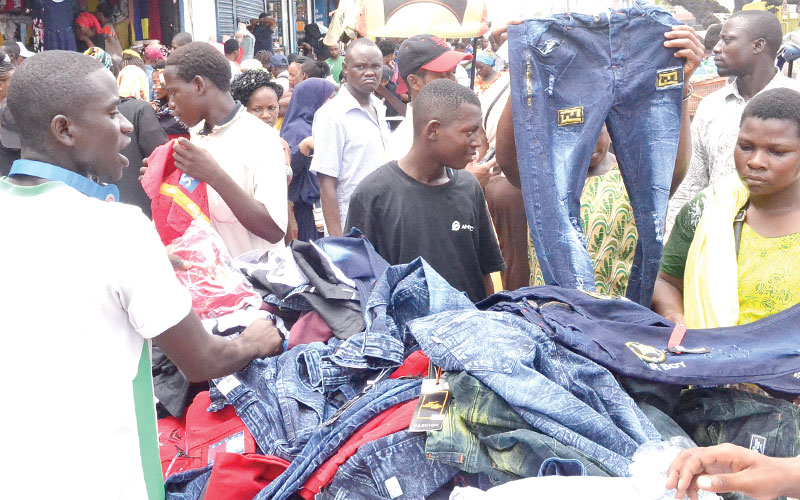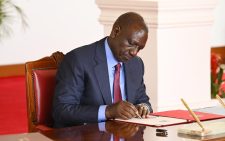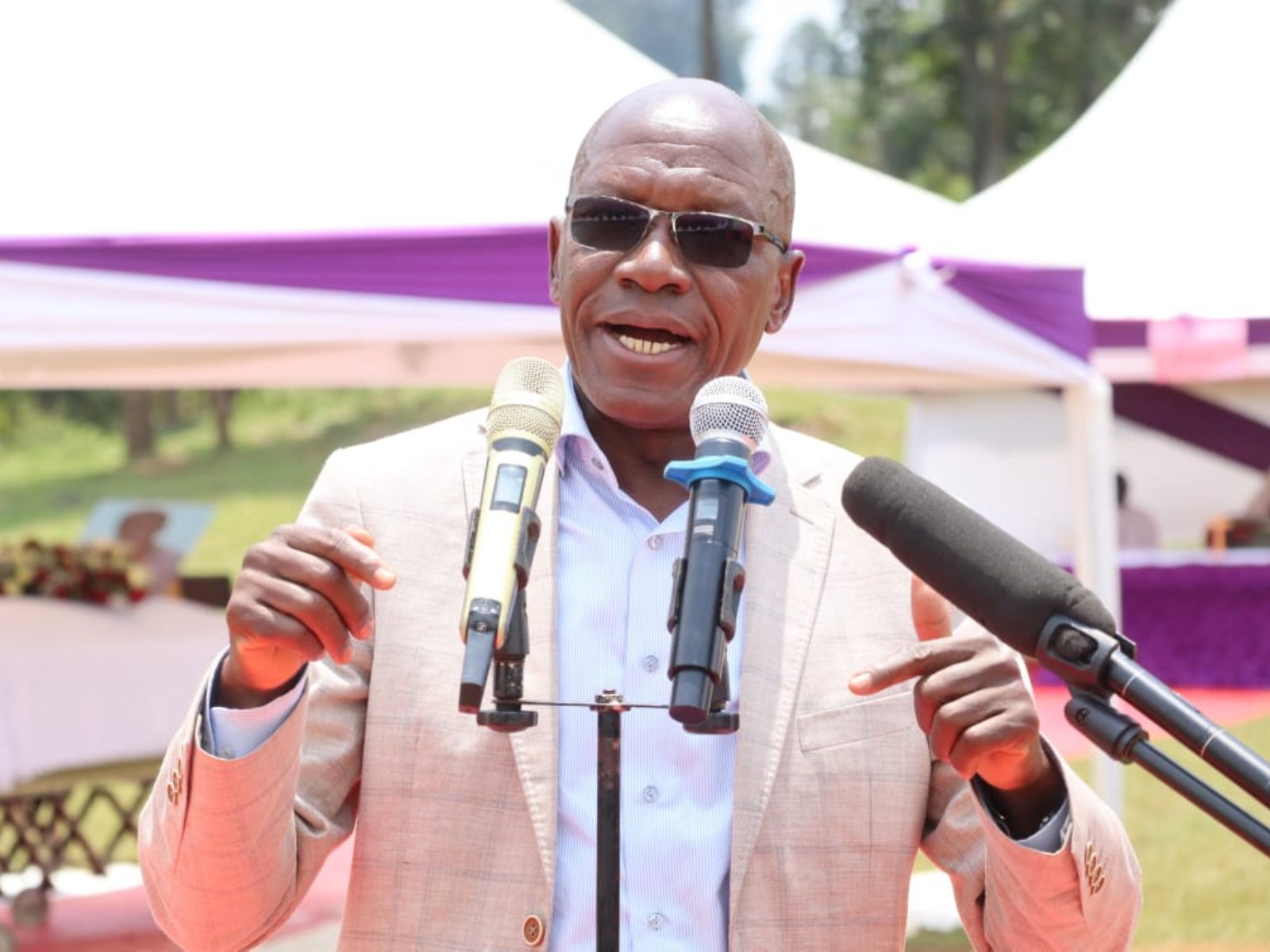Local traders decry unfair competition from Chinese counterparts

By Steve Umidha
Kenyan traders are now accusing their Chinese counterparts of unfair business competition saying the vice is blocking their clients.
Peter Kamanga, a local trader in Nairobi who deals in shoes, bags and apparels say a group of well-known Chinese nationals are illegally shipping sub-standard goods while undercutting the prices.
The growing practice by the four Chinese traders, Eason Weng, Aaron, Debby Cao and Lakes have been accused of importing goods and selling them locally – Mr. Kamanga says is now eating into their profit margins with majority of local traders staring at possible closure as a result.
“The Chinese are the manufacturers of goods back in their country where we import to Kenya’s market. But they are now not manufacturing but also exporting them to Kenya and sell them here at a lower price below the market price, for instance, if my original and genuine shoe cost Ksh 4000, the Chinese will import a sub-standard one and sell it to the locals at a price of Ksh 2000. How am I expected to sell my stock and make a profit,” narrates Kamanga.
Kananga’s frustrations reflect those of thousands of other traders who feel short-changed in the trade equation.
Philipine Cherop, another trader who has felt the wrath of the Chinese’s infiltration into small scale businesses in Kenya.
“We are calling upon the relevant authorities to come to our aid, these Chinese are using their financial muscles and networks back at home to frustrate us here in Kenya. They pull the strings of the supply chains of various goods, including second-hand clothes, from importation, wholesale, down to retail and we who import them from their country are at their mercy,” Cherop reveals.
Earlier this year traders in Gikomba market, Kamukunji and Luthuli Avenue raised the red flag over the rise of Chinese traders whose entry has caused their businesses a fair amount of turmoil.
The traders accused the Chinese of not only hurting their profit margins but also massively destabilizing them from the only business they have engaged in for years.
The Kenyan traders further accuse their Chinese merchants of having crafted a way of evading tax by using Kenyan agents to disguise themselves while directly dealing with end users via online platforms and selling substandard items to woe end users hence affecting the online market platforms which is the future of young entrepreneurs in Kenya who can barely afford shop rent.
Under the Investment Promotion Act (2004) it requires foreigners to invest “at least $100,000 (Sh10 million) to operate in Kenya. The Act further articulates that the investment should be “lawful and beneficial” to the country through job creation, skills upgrade and transfer of technology.
Another trader, Francis Kimani, a trader who imports household goods from China, accuses the Chinese of manipulating or imitating existing local designs which they then get manufacturers back in China to mass-produce.
“Most of their products are not genuine and the trick they use is that they decide to engage in a propaganda war,” Kimani noted, accusations also shared by Kezia Wamui.
According to the Kenya Worldwide Importers and Traders Association (KWITA) approximations over 5,000 small businesses have closed due to unfair competition from foreign traders.
“As a country we don’t have a clear classification of foreign traders, creating confusion about who should and should not do business within its borders,” said KWITA Chairman Ben Mutahi.
The Kenya National Bureau of Statistics (KNBS) estimates that the trade deficit between Kenya and China stood at Sh390 billion as of 2018.












